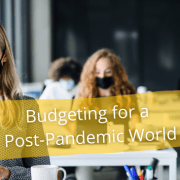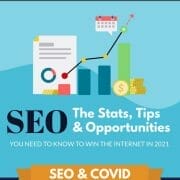What is Pay Per Click Advertising?
If you haven’t used it before you may be wondering what is pay per click advertising? Pay-per-click (PPC) is something you may want to consider when planning your online marketing strategy.
In this post, we hope to address whatever PPC questions may be on your mind.
What is pay per click advertising and how does PPC differ from other popular marketing techniques like SEO?
Whether you are interested in trying this model for your business or just curious about how it works, this guide outlines the basics of PPC and how it works. By the end, this guide might just convince you to consider adding a PPC ad strategy to your marketing plans.
30 Second Summary:
- PPC is a form of digital marketing where you pay every time a user clicks on your ad.
- These paid ads allow you to reach highly targeted audiences to improve brand visibility and increase online sales.
- Most popular PPC platforms are Google AdWords, Microsoft Ads, YouTube Ads and Facebook.
- PPC benefits include easier entry, instant traffic, controlled expenses, complex targeting, and more.
What is PPC?
First and foremost, what is pay per click advertising? Before delving into the specific details of PPC, you must first understand the basics. PPC is short for pay per click, a form of digital marketing where you pay every time a user clicks on your ad. The main difference between SEO and PPC:
- SEO generates organic traffic
- While PPC generates paid traffic
It has become more challenging to reach customers now that competition is intensifying among businesses. Thus, paid ads allow you to design campaigns targeted to your desired audience to improve your brand visibility and increase online sales.
While this may sound simple, crafting successful PPC campaigns is much easier said than done. It takes strategic planning and continuous monitoring to get the best possible results. Hence, in most cases, working with a professional pay per click advertising agency will be helpful and provide access to the expertise and tools needed to design, launch, and maintain successful ad campaigns .
How Do Paid Searches Work?
If you want to get into the PPC world, it is important to understand how paid searches work. Generally, the process works by bidding a specific amount to get an ad spot in the top part of a search engine result page (SERP). Paid ad prices will depend on many factors, but one big consideration will be the competition among other businesses bidding for the same keywords.
To participate in an auction, you will need an account in a pay per click platform to set up the PPC ads and decide where you want to place them. Once you have an account in your chosen PPC network, you will choose keyword themes for each of your ad campaigns. Under each campaign, you can then have ad groups, which are essentially variations of your keywords.
What Pay Per Click Platforms Should You Use?
There are several PPC ad platforms available today, so it is now more accessible than you may think. Part of your PPC strategy includes choosing the best platforms for your campaigns, which you can determine based on your needs and objectives.
To get you acquainted with different pay per click platforms, here are some of the top networks you can look into for your business:
-
Google Ads
Google Ads is the most popular pay-per-click network due to its wide reach of users in the search engine. With this platform, you can target your ads based on specific demographics and narrow them down to your desired audience to maximize returns on your spending.
Another top perk to using Google Ads is that it offers you tools to build your campaign and strategy. For example, the Keyword Planner tool helps you select the best keywords to target by showing you the estimated search volume, relevance, and the like. Finding the right balance with competitive keywords that match your budget will be key to getting optimal results.
-
Microsoft Ads
A popular alternative to the PPC Google giant would be Microsoft Ads, which displays ads on Microsoft and Yahoo. While not as big, this platform may be more cost-effective and less competitive than Google Ads. Similarly, Microsoft takes up a considerable part of the remaining market share after Google, averaging 12.2 billion monthly searches.
Given that, you can use this platform for more concentrated and niche marketing efforts. It is important to note that Google and Microsoft have different target audiences since most of the users in Bing search are in the older demographic. Depending on who you are trying to reach, you may be able to use a combination of the two platforms to increase your brand exposure more aggressively.
-
YouTube Ads
Another familiar PPC platform would be YouTube, which comes as no surprise. Whenever you watch videos and get interrupted by ads, those are precisely part of YouTube’s PPC marketing efforts. With YouTube’s Find My Audience Tool, you can better understand who your customers are and tailor your marketing efforts to address their needs.
If you place ads on YouTube, you will still manage your content and campaigns through the Google Ads network. The only difference is that ads is displayed on YouTube videos instead of Google search results. Likewise, you can get more technical insights through your YouTube account to see how your strategy is doing.
-
Facebook Ads
Social media networks have also jumped on the bandwagon of paid advertising, appealing mostly to smaller businesses that want to send more targeted ads. With a large user base of over two billion people, Facebook takes the lead as the biggest social media platform in the world.
Facebook has also evolved to become a major PPC network, where you can target users on a more granular level. It means you can go deep into your target audience’s demographics, geography, interests, behaviours, attitudes, and preferences to make sure you reach them with your ads.
Benefits of PPC Advertising
Now that you better understand what is pay per click advertising and how the general process works, you might be thinking about how it can be useful for your business. After all, SEO is an equally popular strategy in online marketing, but it relies solely on organic searches.
Understanding the benefits of PPC will help you see how you can miss out on many opportunities if you do not include this in your marketing strategy. If you are still not convinced about trying out PPC, here are some key benefits that you can expect from it.
-
Easier Entry
A common concern that new businesses have about SEO is the slow entry, given that it takes a long time to achieve top rankings and get your customers’ attention. With PPC, you can have a significantly easier entry into the online space as the ad spots are positioned at the top of search results, and you can target them specifically to your audience.
Now, this is not to say that you should only use PPC and forego SEO. A combination of both platforms will be ideal since building your SEO strategy will also have many positive impacts on your business in the long run. However, the edge of using PPC is that it speeds up the process of marketing your business online.
-
Control Over Expenses
There is often the assumption that a PPC advertising campaign needs a large budget due to its “paid” nature. However, what makes PPC accessible to all businesses, big or small, is that you can control your expenses. For one, you can decide how much you want to bid for a particular keyword, so you can adjust this to fit your budget.
Likewise, you can always modify or stop ad campaigns if they are not generating your desired results. You can easily adjust your expenses whenever the need arises, so you do not have to worry about getting caught in high costs in the long run. As you monitor how your pay per click ads are performing, you can always cut out a few and focus more on those doing well.
Finally, going back to what PPC stands for, you only need to pay when users click on your ad. Naturally, you will have to make sure the cost-per-click (CPC) is not too expensive and that it goes over your spending capacity. However, generally, the idea of paying only for clicks is a huge financial advantage since you can still put your ads out and increase exposure without necessarily paying for them.
-
Complex Targeting Capabilities
Another key advantage to using PPC is the complex targeting algorithms you can use to ensure your ads reach your target market. The simplest targeting technique would be through keywords, but with PPC, you can do so much more and even re-market your ads to boost customer retention.
Having access to such targeting capabilities ultimately allows you to reach a new market or people you may not have been able to before. Like how you have control over your expenses, you also have control as to how wide you want your reach to be.
-
Access to Valuable Insights
When using PPC platforms, you can easily access plenty of valuable data and insights to monitor your ad campaigns. For example, Google Ads provides you with analytics to show you impressions, clicks, and conversions for your targeted keywords. From here, you can pick out the underperforming ad campaigns and determine how to improve on them.
No matter what type of marketing you are doing, you will always need to monitor your results to find areas of improvement and maintain positive results. However, the advantage of PPC is that you can readily get the data through the many PPC networks available today.
-
Increase Brand Recognition
Many times, you might think of paid ads as a way to acquire new customers. While this is certainly true, they can also help you increase brand recognition among customers who may have already encountered your ads in the past.
By re-marketing your ads to the right audience, users can better retain your brand name and associate it with whatever you may be offering. Whether they end up purchasing or not, you still benefit from more brand visibility and exposure, which can be extremely useful in the long run.
Need Help With PPC Ads?
Pay per click advertising undoubtedly unlocks multiple opportunities to reach new audiences and improve your marketing efforts. You do not need to break the bank to set up your first ad campaign, so there is little risk in trying it out to see how it goes. You never know — PPC might just be the strategy you need to outperform your competitors!
Call our team today and discover what pay per click advertising can do for your business 1-888-262-6687!








